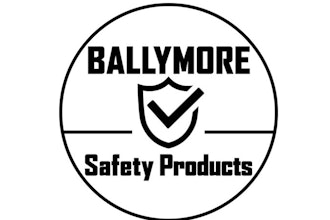According to the January ISM Report On Business, economic activity in the manufacturing sector expanded for the 18th consecutive month, and the overall economy grew for the 20th consecutive month. Norbert J. Ore, CPSM, C.P.M. Chair, ISM Manufacturing Business Survey Committee, recently spoke to Industrial Distribution about the most recent report and what it means for the manufacturing industry.
|
Norbert Ore, CPSM, C.P.M. |
According to the report, manufacturing grew at a faster rate in January than in previous months. In fact, the PMI (Purchasing Managers Index) registered 60.8 percent, which is the highest level since May of 2004.
ID: What are some of your initial thoughts on the report and what it means for the manufacturing industry?
Ore: First of all, this is the sixth month in a row that we have seen month-over-month growth exceed the prior month. We have seen growth for 18 consecutive months. There was a lot of momentum that we created in the last five months of 2010, and it is carrying over into 2011.
ID: Can we expect growth to occur at this kind of pace moving forward? Is that realistic?
Ore: If we asked for this kind of growth (moving forward), we’d be called greedy. This is not a sustainable pace. It gives some credibility to a strong first half of the year, and for certain a strong first quarter, even a strong first half of the year.
In 2010, the PMI averaged 57.3. That’s the third-best year we have seen in the last 20. 1994 was better, and 2004 was better. But those years didn’t have the consistency and the stability that 2010 had. Anything above 57.3 is probably out of reach in 2011. But the thing about 2010 is that it really was a very good year based on our numbers, and I think overall it was a very good year for the recovery of manufacturing.
ID: What do you feel are some of the driving forces behind this kind of performance?
Ore: In 2010, we talked a lot about confidence, that people lacked confidence to make decisions. I think the clarity that was achieved on the tax code in December certainly primed the pump for 2011 as well.
For manufacturing, the stimulus had to indirectly help somewhat. But it had more to do with the fact that this was a typical business cycle recovery. In manufacturing, we cut inventories, we cut unemployment, stopped spending, and rationalized facilities. At the distribution level, they pretty much did the same thing. They cut inventories, they cut unemployment, they quit investing, and they rationalized the number of branches that they had.
ID: The employment index rose a little bit, so are we going to see companies hiring more in 2011 and beyond?
Ore: That’s the highest (employment index) reading since 1973. Sadly, in 1973, that level would have meant they’re hiring significantly and that the sector was coming back in terms of employment. The problem is the composition today of manufacturing is based on very low labor content. It doesn’t mean today what it would have meant back then. What it does mean is that…manufacturers are willing to hire, they will replace positions, and in some cases they will increase the numbers of positions. In some instances, they may call a full shift back. We lost 2 million jobs in manufacturing. This would only begin to bring a small number of those back.
Norbert J. Ore, CPSM, C.P.M, is a supply chain consultant and a recognized supply management leader known for global strategy and technology implementations in Fortune 500 companies. In addition to his work with the ISM Manufacturing Business Survey Committee, Ore is a frequent speaker to both buyers and sellers on negotiations, outsourcing, services and contracts, and he has authored numerous articles on those subjects. For more information on the Institute for Supply Management, visit www.ism.ws.






















